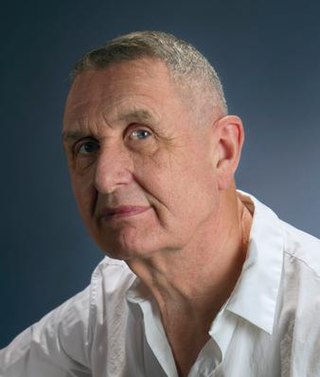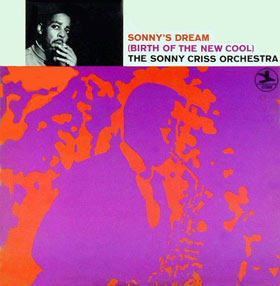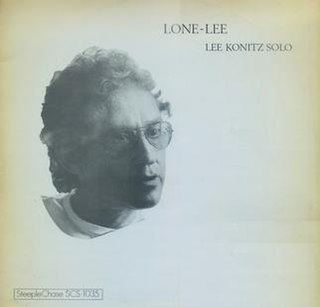
Han Bennink is a Dutch drummer and percussionist. On occasion his recordings have featured him playing soprano saxophone, bass clarinet, trombone, violin, banjo and piano.

Marion Brown was an American jazz alto saxophonist, composer, writer, visual artist, and ethnomusicologist. He was a member of the avant-garde jazz scene in New York City during the 1960s, playing alongside musicians such as John Coltrane, Archie Shepp, and John Tchicai. He performed on Coltrane's landmark 1965 album Ascension. AllMusic reviewer Scott Yanow described him as "one of the brightest and most lyrical voices of the 1960s avant-garde."

Hope Scope is an album by David Murray's Octet recorded in 1987 and be released on the Italian Black Saint label in 1991. It features Murray's Octet and includes performances by Murray, Rasul Siddik, Hugh Ragin, Craig Harris, James Spaulding, Dave Burrell, Wilber Morris and Ralph Peterson, Jr.

Live in Zurich is an album by the jazz group the World Saxophone Quartet recorded in 1981 and released on the Italian Black Saint label.

Sweet Honey Bee is an album by American jazz pianist and composer Duke Pearson, released on the Blue Note label in 1967. The woman on the cover was Pearson's fiancee Betty.

Expandable Language is an album by American jazz saxophonist Oliver Lake recorded in 1984 for the Italian Black Saint label.

Maarten van Regteren Altena is a Dutch composer and contrabassist. Altena attended the Conservatorium van Amsterdam and graduated in 1968. Between 1980 and 1985, he studied composition with Robert Heppener.

Four Altos is an album by saxophonists Phil Woods Gene Quill, Sahib Shihab and Hal Stein recorded in 1957 and released on the Prestige label.

Sonny's Dream (Birth of the New Cool) is an album by saxophonist Sonny Criss recorded in 1968 and released on the Prestige label.
Instant Composers Pool (ICP) is an independent Dutch jazz and improvised music label and orchestra. Founded in 1967, the label takes its name from the concept that improvisation is "instant composition". The ICP label has published more than 50 releases to date, with most of its releases featuring the ICP Orchestra and its members.

Saturday Night at the Village Vanguard is a live album by saxophonist Art Pepper, recorded at the Village Vanguard in 1977 and released on the Contemporary label.

Spirits is an album by American jazz saxophonist Lee Konitz recorded in 1971 and released on the Milestone label.

Lone-Lee is a solo album by American jazz saxophonist Lee Konitz recorded in Denmark in 1974 and released on the Danish SteepleChase label. The original LP released in 1975 featured an edited take of "The Song Is You" lasting 19 minutes and the CD release in 1987 featuring the complete unedited take.

Pride is an album by saxophonist Lee Konitz recorded in 1999 and released on the Danish SteepleChase label.

Anthony Braxton's Charlie Parker Project 1993 is an album featuring live and studio performances of compositions associated with Charlie Parker arranged and performed by saxophonist Anthony Braxton which was recorded in Switzerland and Germany in 1993 and released on the HatART label as a double CD in 1995.

The Way is a live album by soprano saxophonist Steve Lacy, which was recorded in Basel, Switzerland in 1979 and first released on the HatHut label in 1980 as a double LP. The album was rereleased as a double LP in 1985 and as a CD in 2000 with three additional tracks from the concert.

The King is an album by saxophonist/composer Benny Carter recorded in 1976 and released by the Pablo label.

Juba-Lee is an album by American saxophonist Marion Brown. It was recorded in November 1966 in New York City, and was released in 1967 on the Fontana label. The album features Brown on alto saxophone, Bennie Maupin on tenor saxophone, Alan Shorter on trumpet and flugelhorn, Grachan Moncur III on trombone, Dave Burrell on piano, Reggie Johnson on bass, and Beaver Harris on drums. The album was recorded roughly a month prior to Brown's Impulse! debut, Three for Shepp. The tracks "Juba-Lee" and "Iditus" also appear on the 2019 ezz-thetics album Capricorn Moon To Juba Lee Revisited.

Why Not? is an album by American saxophonist Marion Brown. It was recorded in October 1966 in New York City, and was released in 1968 on the ESP-Disk label. The album, which was also released with the title Why Not, features Brown on alto saxophone, Stanley Cowell on piano, Sirone on bass, and Rashied Ali on drums. The album was recorded roughly a month prior to Brown's album Juba-Lee. The tracks were reissued on the 2020 ezz-thetics album Why Not? Porto Novo! Revisited.

Marion Brown Quartet is an album by American saxophonist Marion Brown, his debut as a leader. It was recorded in November 1965 in New York City, and was released in 1966 on the ESP-Disk label. The album features Brown on alto saxophone, Alan Shorter on trumpet, Bennie Maupin on tenor saxophone, Reggie Johnson and Ronnie Boykins on bass, and Rashied Ali on drums.



















